Magical memories of the Glasgow Apollo: From the Stones to Queen
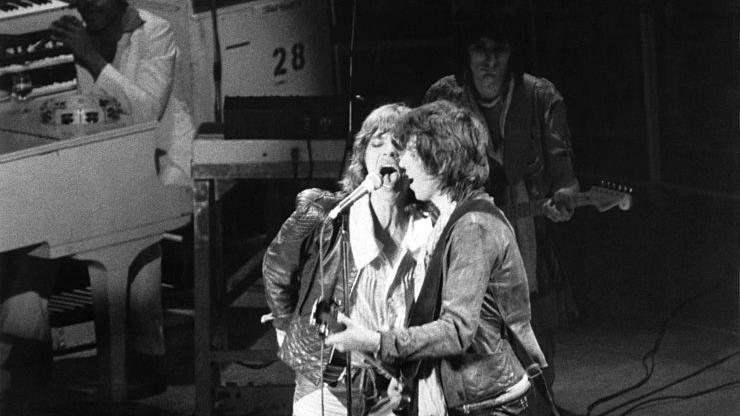
Mick Jagger and Keith Richards at Glasgow's Apollo Theatre on 10 May 1976
- Published
The Apollo was Scotland's leading concert venue in the 1970s and 80s and hosted the likes of The Rolling Stones, Queen and Fleetwood Mac.
Situated at the top of Glasgow's Renfield Street, it attracted hardcore music fans from across the country.
The theatre is considered by some as a big part of Glasgow's history, despite it only being open for about 12 years.
But in 1985, the building closed and was later demolished following a fire in 1987.
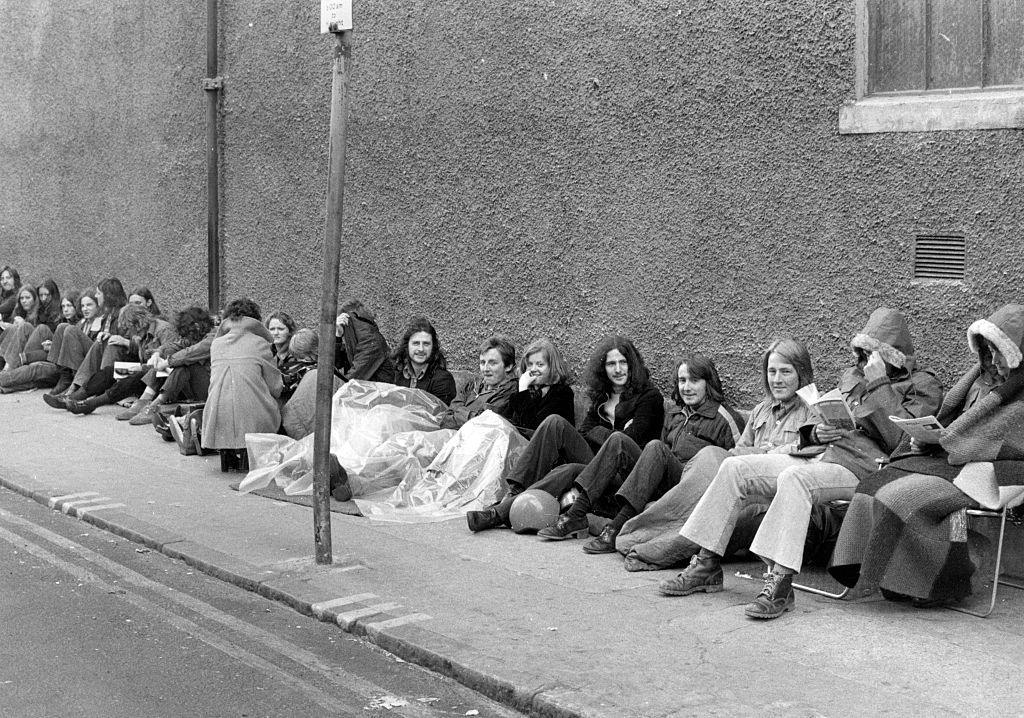
Rolling Stones fans queue for tickets outside the Apollo in 1973
Previously Green's Playhouse, it opened on 15 September 1927.
The building consisted of a cinema, ballrooms, tea rooms and other facilities.
In 1973, it became the Apollo after it was taken over by founder, Frank Lynch, a well-known nightclub manager in Glasgow and the manager of a young Billy Connolly.
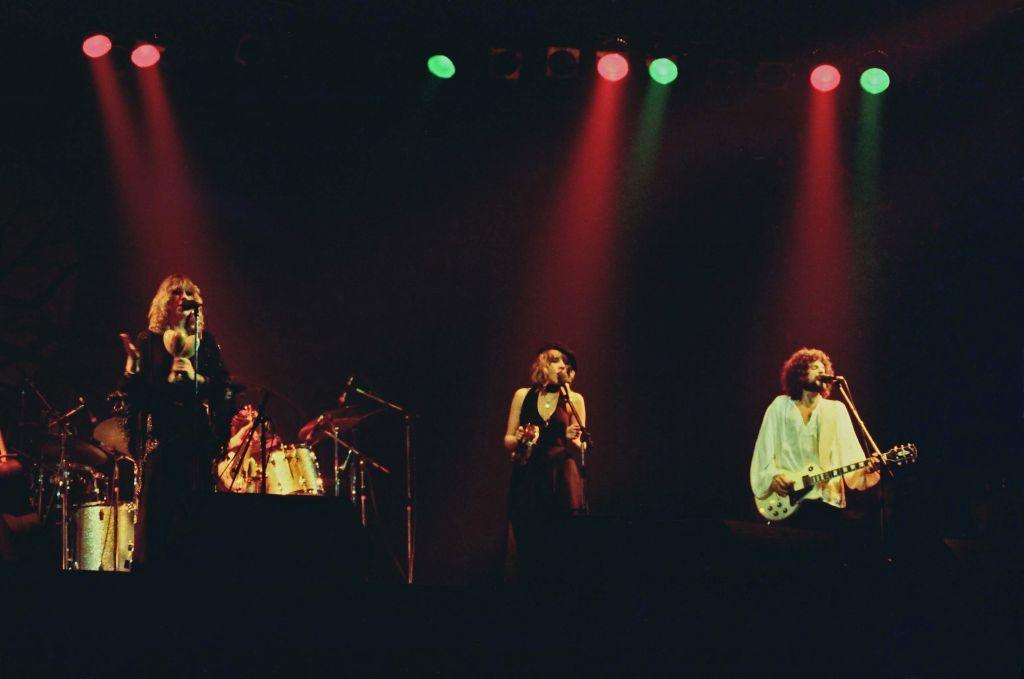
Fleetwood Mac Perform at the Apollo in 1977
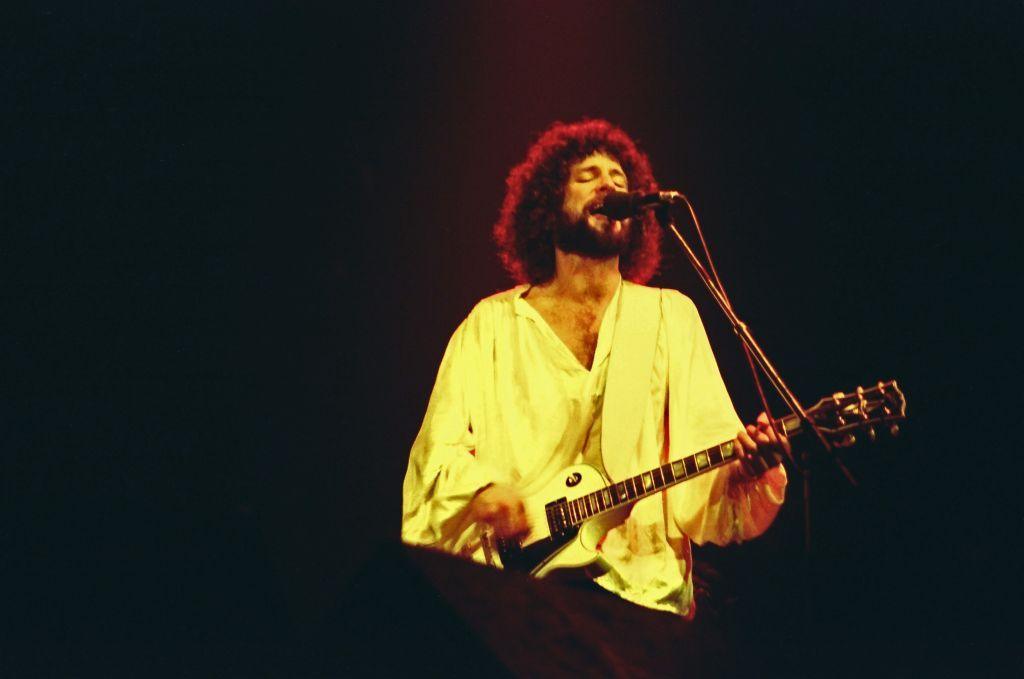
Lindsey Buckingham of Fleetwood Mac performs on stage
Many iconic musicians and bands performed at The Apollo including:
10CC
ABBA
AC/DC
Bob Marley and The Wailers
The Osmonds
Chuck Berry
David Bowie
Diana Ross
Earth Wind and Fire
Ella Fitzgerald
Joy Division
Johnny Cash
KISS
Led Zeppelin
Status Quo
T-Rex
Paul McCartney and Wings
Pink Floyd
Queen
The Kinks
Wham!
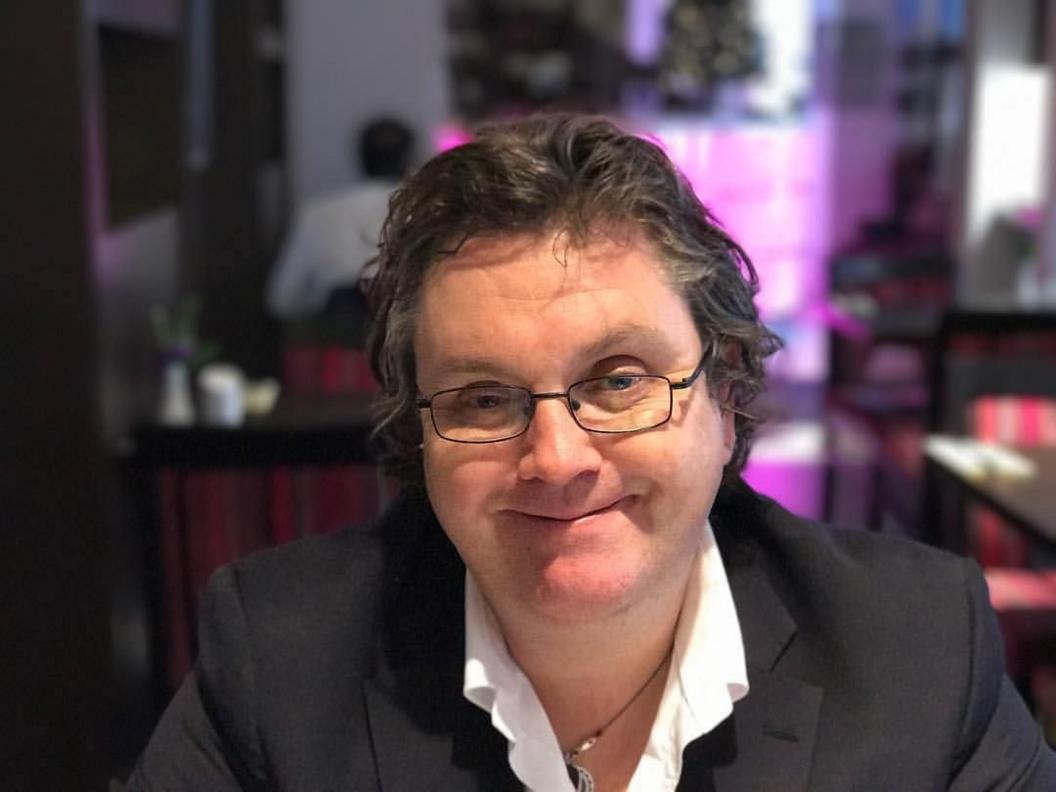
Scott McArthur attended his first gig at the Apollo in 1981
The Apollo holds a special place in the hearts of music lovers in the city in a time before the Hydro and even the SECC.
Scott McArthur, from Glasgow, attended his first gig there in 1981, where he saw Judas Priest.
From that point he was hooked and loved the live music scene.
To carry on its legacy, he and his friend, Andrew Muir, set up the Glasgow Apollo website in 2004.
It started as a fun hobby, but quickly grew in popularity, with the Facebook page now at 16.8k members.
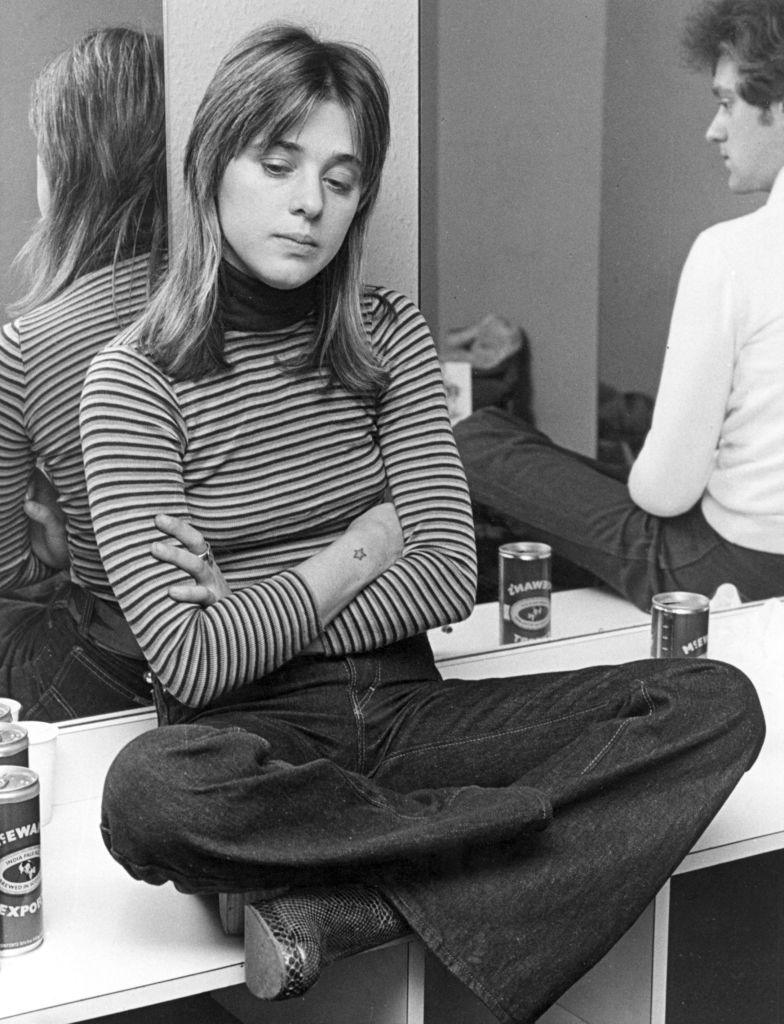
US rock singer Suzi Quatro contemplates the local brew in her dressing room before playing the Glasgow Apollo on her first headlining UK tour in 1975
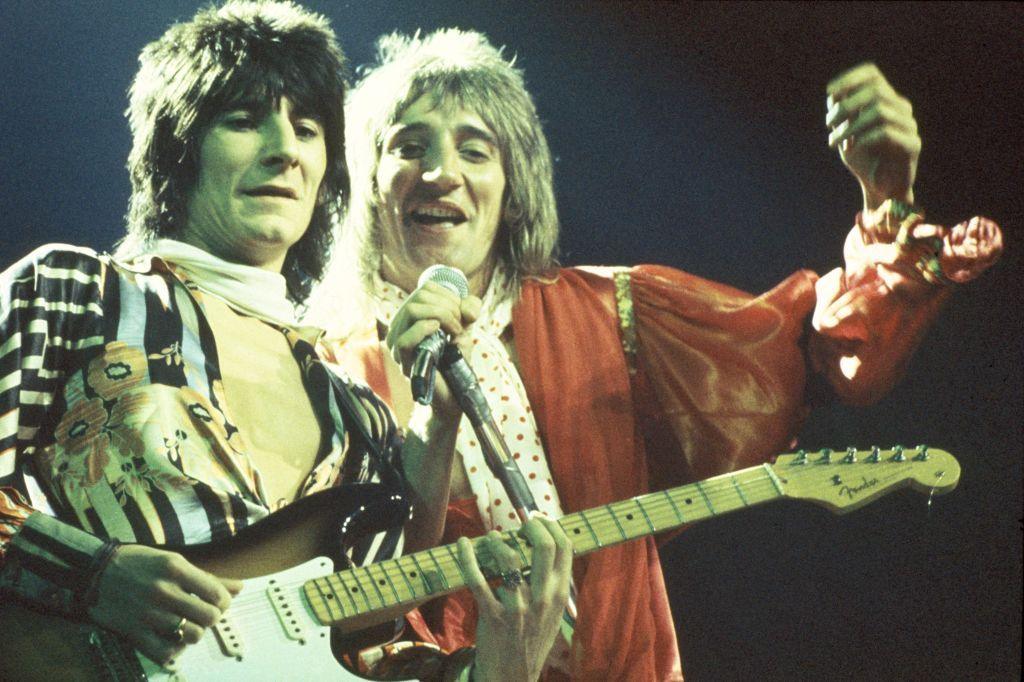
Ronnie Wood and Rod Stewart of Faces performing live onstage
"It just went bonkers," he says.
“We had so many inquiries, people asking if they could send pictures, tickets, it really did take off very quickly.
“It was something that meant a lot to us when we were younger and we thought it should be something that was celebrated."
Scott recalls his first gig and imagines the feeling was like "taking a drug".
"I went to the first gig and it was like wow what an earth is this all about," he says. "It was absolutely mad, so loud and sweaty.
"It was almost like being in a football crowd. You felt part of something much bigger than you were yourself."
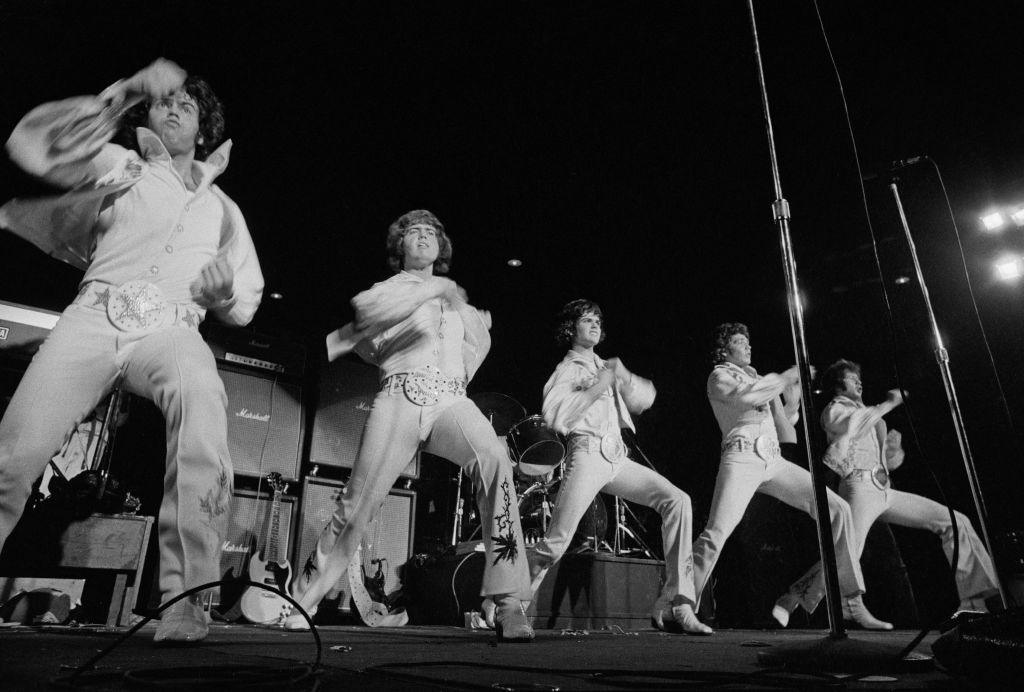
American pop group The Osmonds performing at the Apollo - Left to right: Alan, Merrill, Donny, Jay and Wayne Osmond
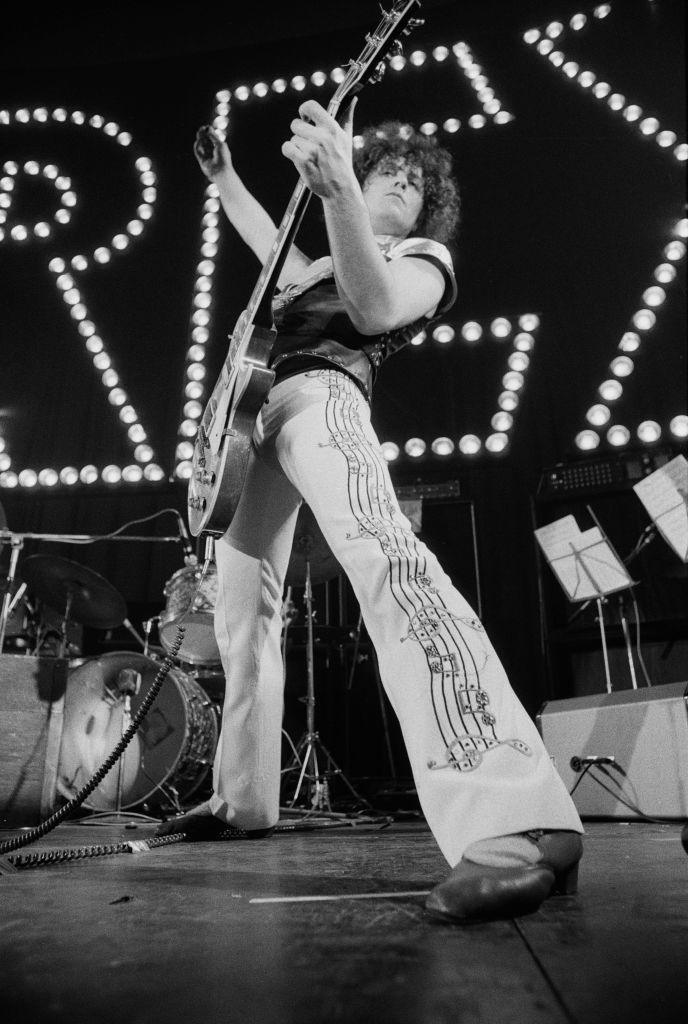
Singer and guitarist Marc Bolan performing with British glam rock group T-Rex, in January 1974
Despite the bands being the main attraction of the Apollo, Scott believes it was the fans that made it history.
"I’ve become absolutely sure that it’s the fans that are the most important thing. Not the building, not the bands but the fans," he says.
"I think the music fans in Glasgow are absolutely terrific. You go to the Barrowlands or any other venues in Glasgow and you still get an incredibly enthusiastic audience that you don’t get in every other city or anywhere else in the world."
There were many myths and rumours made up about the iconic venue, such as its stage height or brutal bouncers.
But Scott insists the stage was only 12ft (3.7m) high.
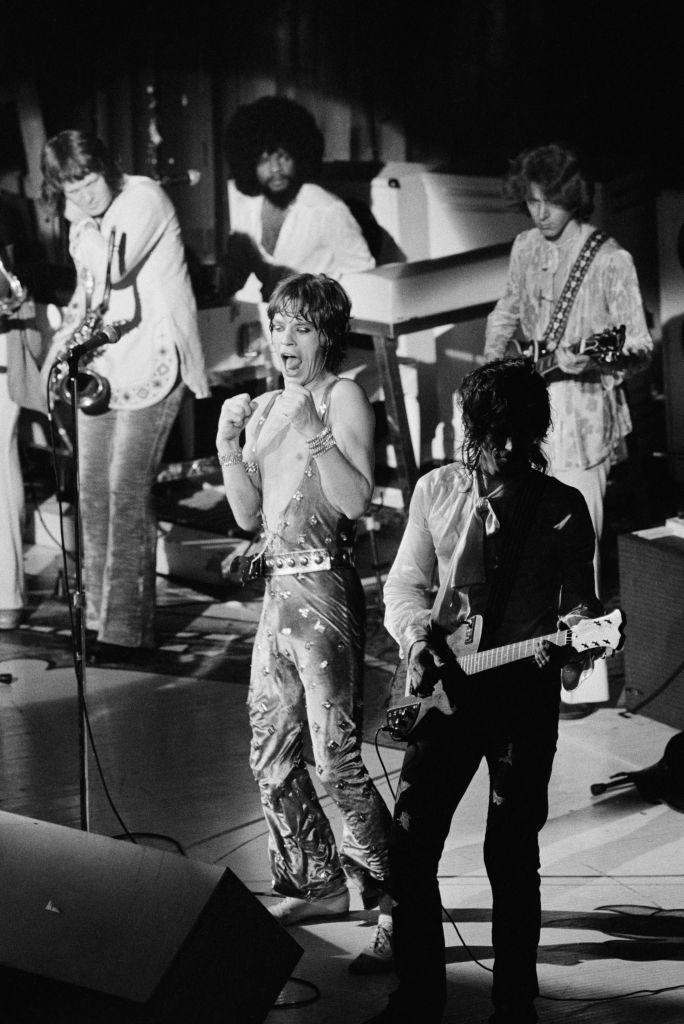
The Rolling Stones performing at one of their two Apollo Theatre shows in Glasgow, on 16 and 17 September 1973

Lynyrd Skynyrd perform at the Glasgow Apollo in 1977
Scott can remember when the Apollo went in to disrepair.
“It was in a terrible state," he says. "It was definitely a shabby old lady.
"We used to call it the appalling. It was a knackered old building that had been neglected. It was a real shame."
He credits the success of the Apollo to its founder, Frank Lynch.
“He was really entrepreneurial. He was quite a character and he would go to bands who weren’t touring and invite them to the Apollo," he says.
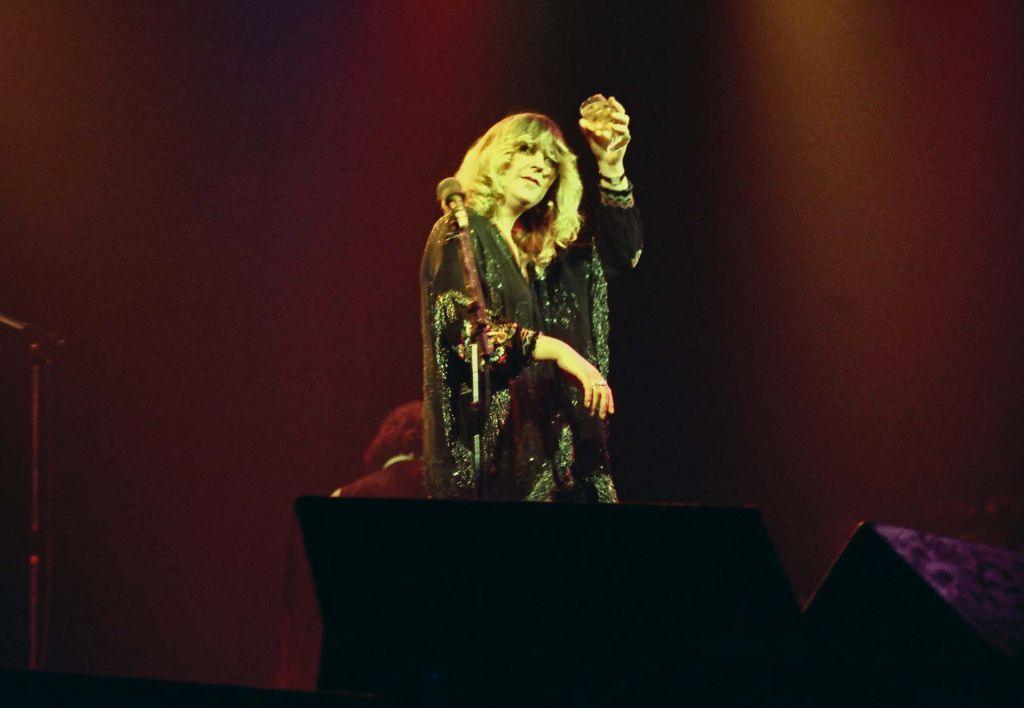
Christine McVie of Fleetwood Mac toasts the audience after the band's performance on stage in 1977
"He managed it in a way that felt different to the bands and it started to develop a reputation.
"The Glasgow audiences right back to the dance hall days have a famous reputation for either loving you or hating you and they tell you. I think he built on that to create an image of a wild, fantastically enthusiastic crowd.
"Why wouldn’t you want to come there if you were a band? All the live albums that have been recorded there are testament to that."
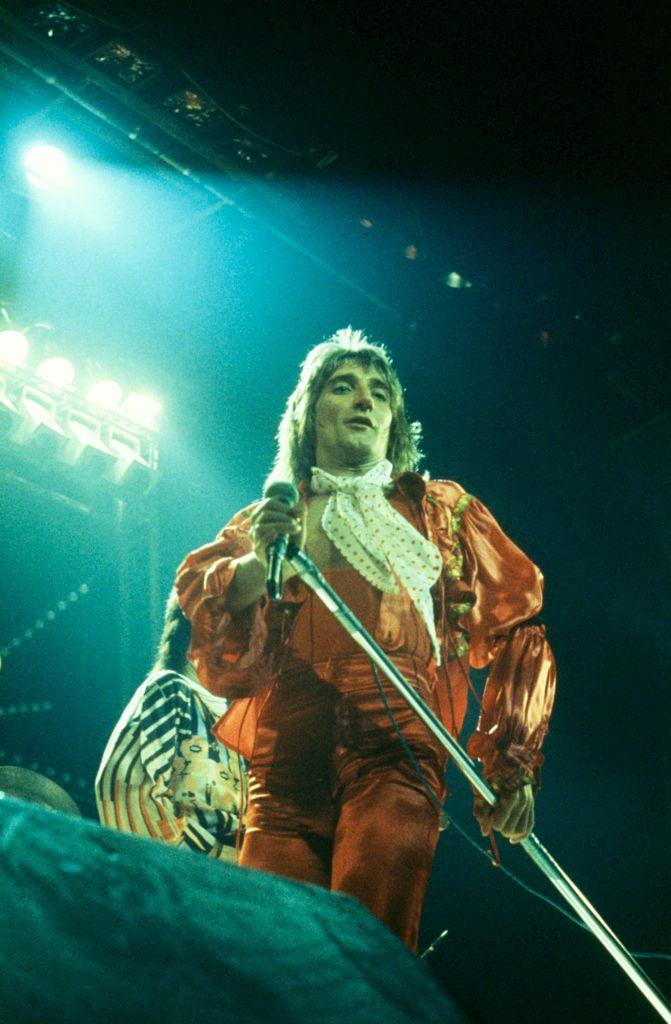
Rod Stewart performing live onstage with Faces
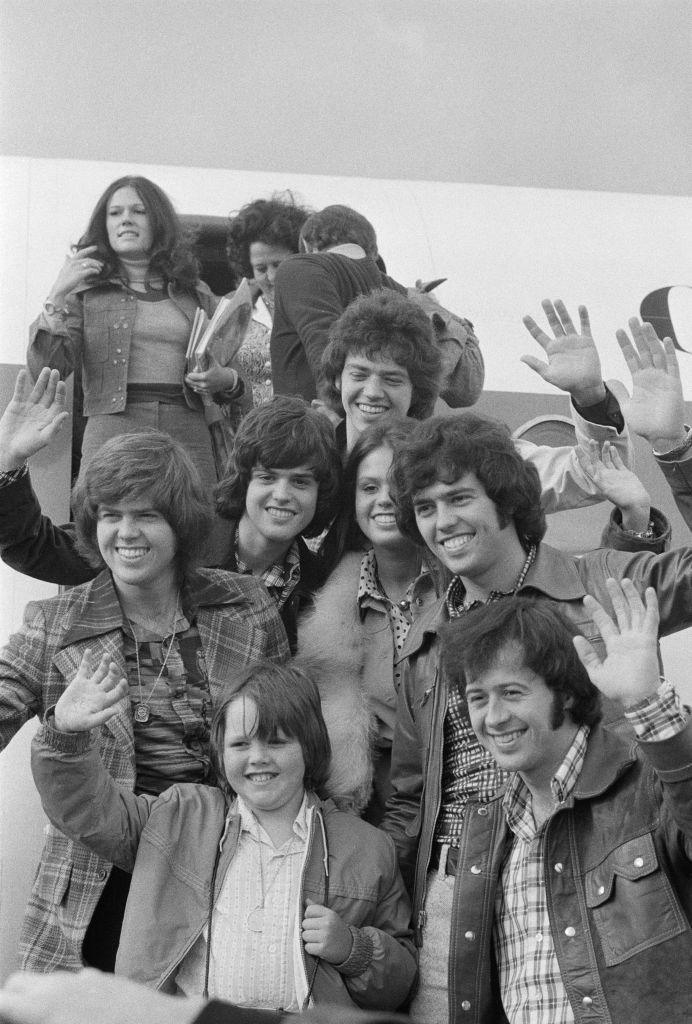
American pop group The Osmonds arrive at Glasgow Airport in 1972
The first musician to perform at the Apollo was Johnny Cash and he ended a short UK tour at the Apollo by playing three shows on 5 and 6 September 1973.
He had just played to more than 30,000 people at Wembley stadium before arriving in Glasgow.
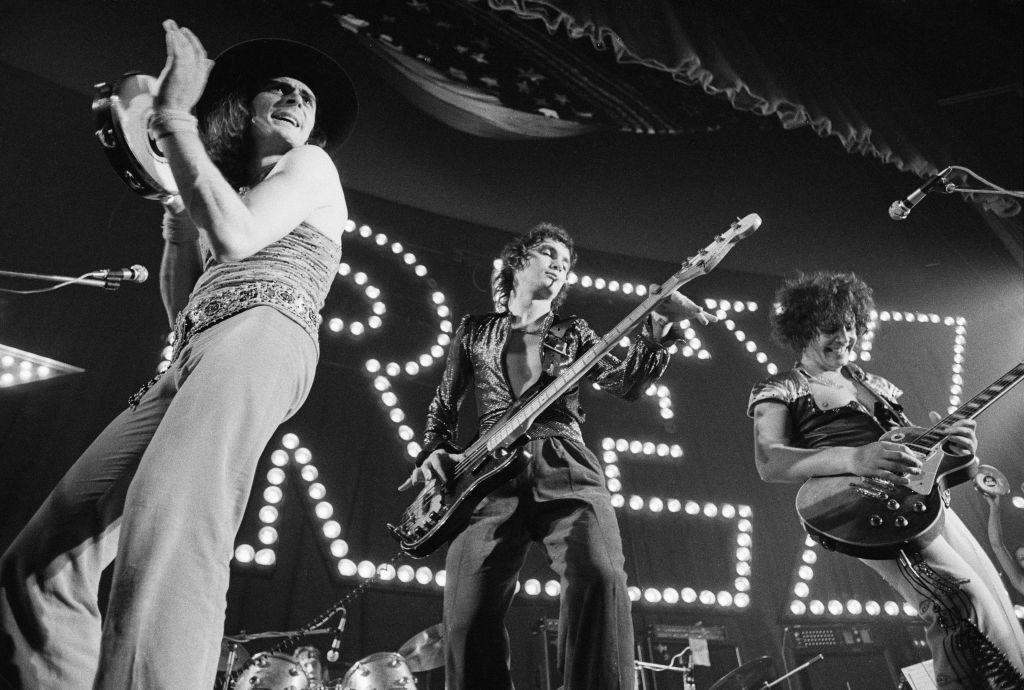
T-Rex performing at the Apollo in 1974
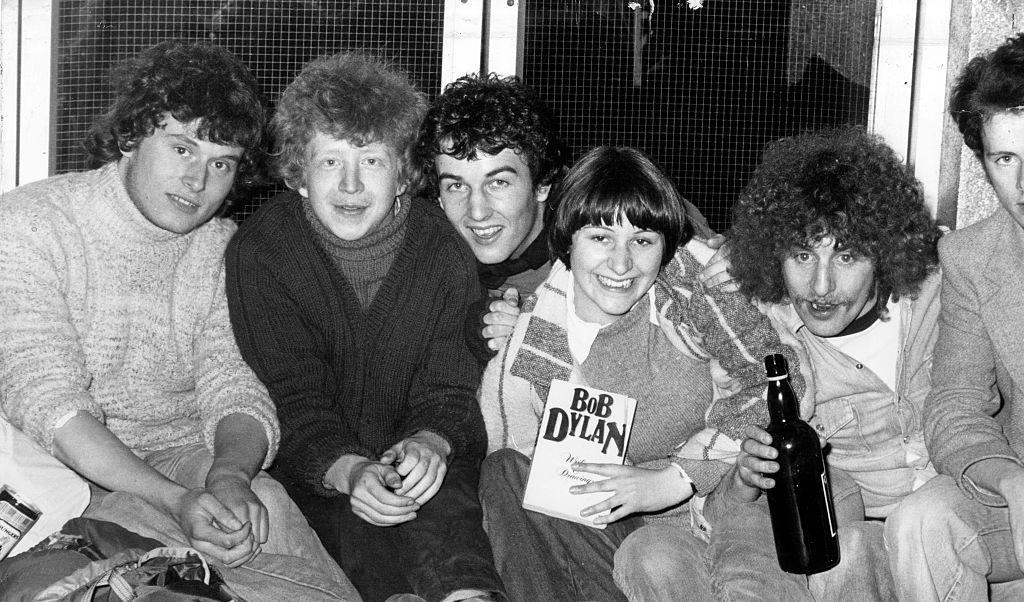
Fans of Bob Dylan; Nigel Watts, Hugh Eaglesham, Ewan Halley, Lesley Forrester and Taw Caldwell
Fans would often queue outside the venue to secure front-row spots or collect tickets for concerts elsewhere in the UK.
Fans of Bob Dylan (pictured above) queued for tickets outside the Apollo in 1978, even though he wasn't due for another month and the concert would be in London.
Entry was only £7.50 each.
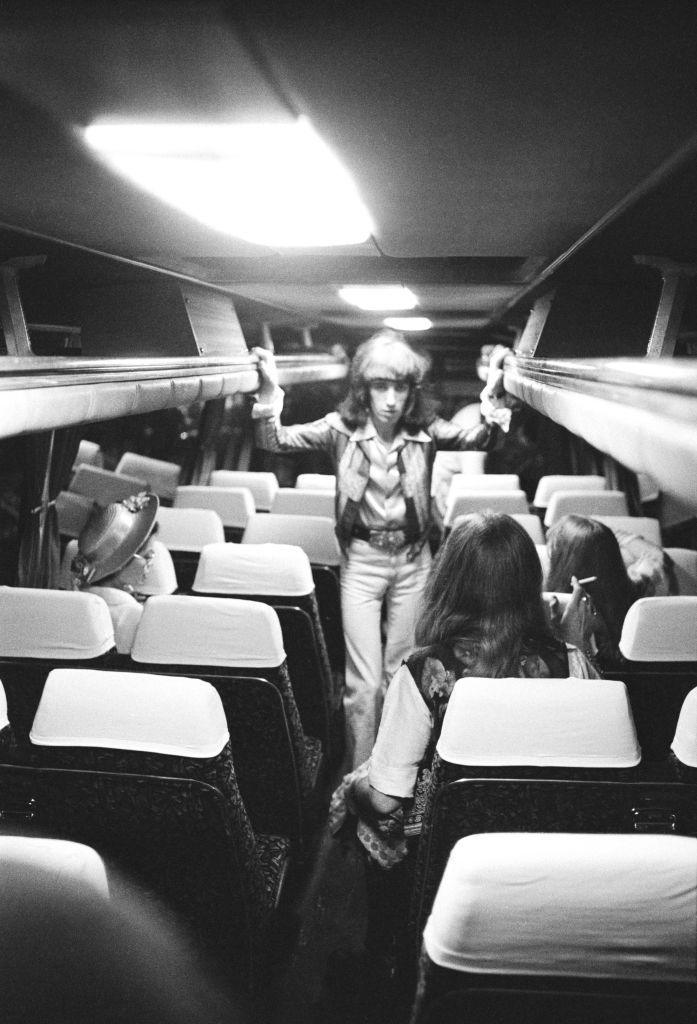
The Rolling Stones Tour Bus
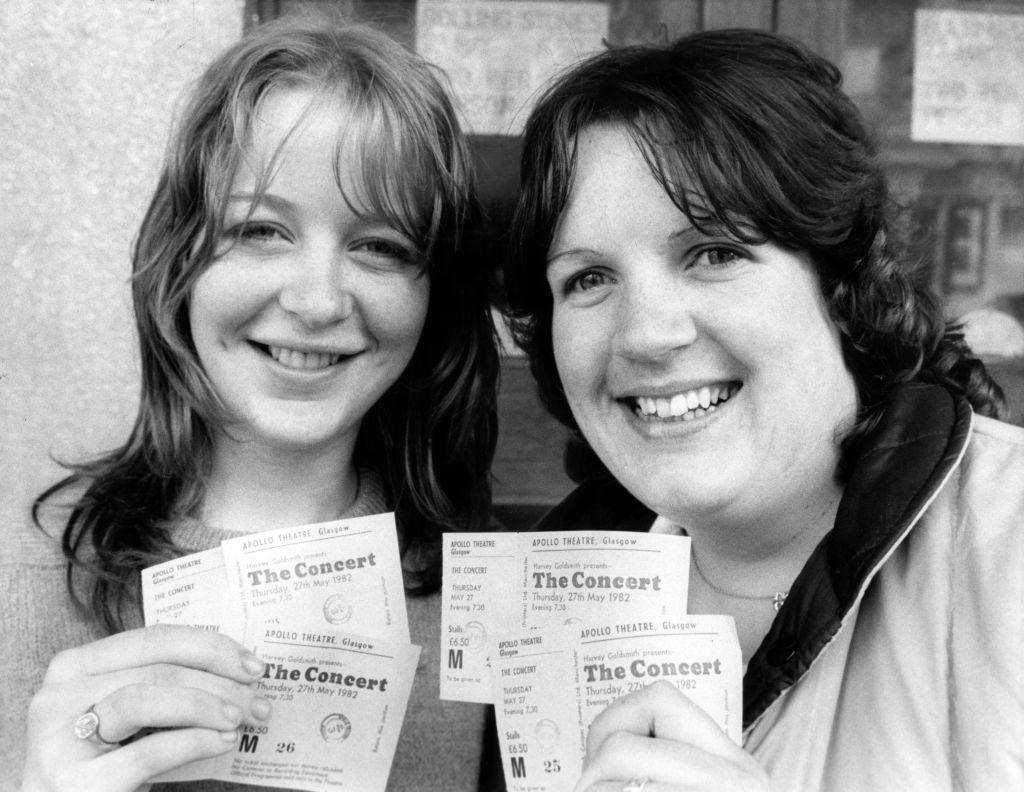
Rolling Stones fans, Carol Morton (left) and Pearl Meenagh, were first in the queue for tickets in 1982
Get in touch
What stories you would like BBC News to cover from Glasgow and the west of Scotland?